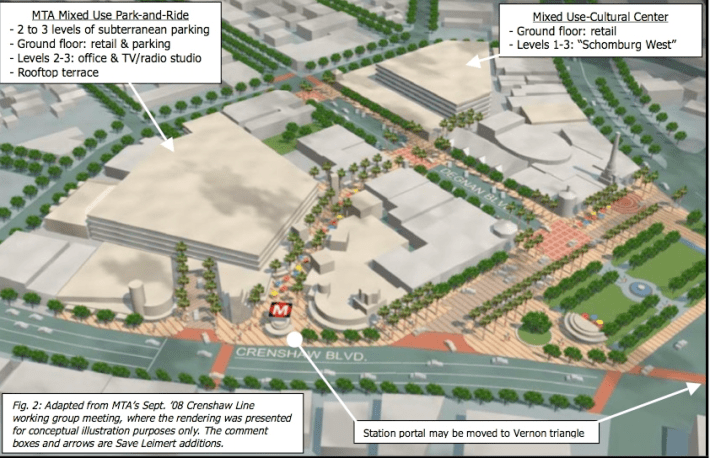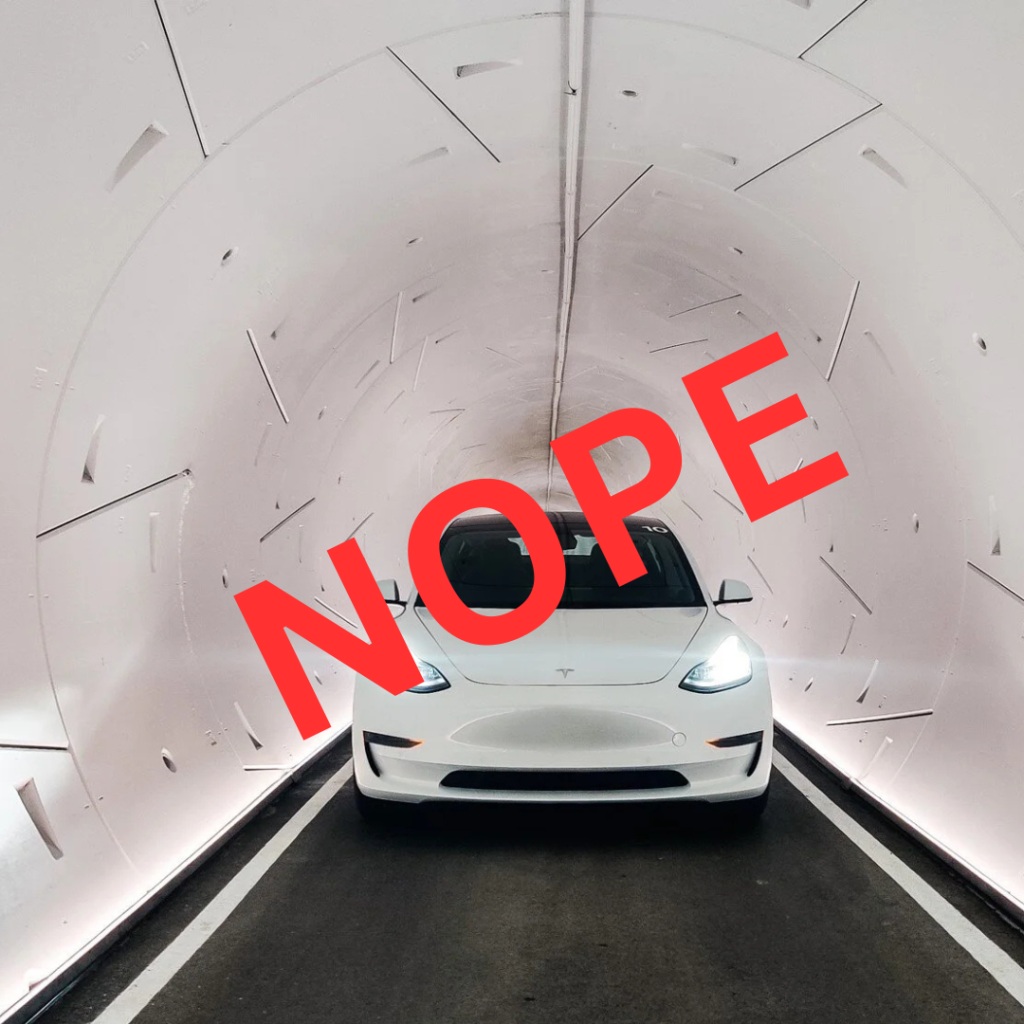(Update: I've just received word that the Leimert Station/Crenshaw Subway motion has been delayed until the next Metro Board meeting in May. - DN)
The Metro Board of Directors will meet on Thursday at 9:30 A.M. to debate and vote on a host of topics ranging from figuring out a way to increase Metrolink service to Antelope Valley to a new contract for a waste disposal company. But there are three agenda items that highlight the agenda and will loom large for transit and active transportation advocates: Supervisor Mark Ridley-Ridley Thomas' "Crenshaw Subway" proposal, a staff proposal to finally lift the rush hour bikes on trains ban, and a motion by Santa Monica Council Woman Pam O'Conneor to create an "active transportation" agenda for the agency.
As we discussed last week, Supervisor Mark Ridley-Thomas penned a resolution that would require that the Crenshaw light rail line run below-grade for twelve blocks from 48th Street to 59th Street and the construction of a station at Leimert Park. As we discussed last week, the motion has strong community support, but has rankled transit advocates because of language that suggests to fund the station and grade-separation that funds could come from Measure R dollars allocated for the Expo Line or the Green Line extension to LAX. South L.A. activists complain that "Westside Politicians" are misrepresenting the proposal and that it's really just about making the best project for the Crenshaw Corridor.
The politics of the "Crenshaw Subway" proposal remain complicated. Last week, Streetsblog noted that to move Measure R funds would require a two-thirds vote of the Metro Board of Directors, but this motion just requires a majority to pass. At the Measure R Project Delivery Subcommittee last week, the motion passed 2-1, with Ridley-Thomas and Republican Supervisor Mike Antonovich voting in favor and Lakewood City Council Member Diane DuBois voting in opposition. Mayor Antonio Villaraigosa, who controls four votes on the Board of Directors, declined to comment on the proposal and two of his appointed members, former Assemblyman Richard Katz and City Councilman Jose Huizar were absent from the committee meeting.
It's hard to imagine that the Metro Board is finally ready to pass a resolution ending the rush hour ban on bicycles on certain trains at rush hour. It was way back in the fall of 2008 when Metro staff first started floating the idea in public, and since then the story has popped up eight more times on Streetsblog (a full list of those stories can be found at the end of the article). But Thursday is the day! Hopefully.
A short motion that unambiguously ends the ban, or peak hour restriction, appears as item #22 on the agenda. The motion would also require removing seats on some trains to create standing areas to increase rail capacity and give people with large items such as bicycles, baby strollers, wheelchairs, Christmas Trees, more space.
While that motion passed committee by a 3-0 vote, there is a competing motion introduced by Metro Chair Don Knabe and Dubois that would delay removing the ban while more study is completed. Their motion reads:
CONSIDER APPROVING Motion by Chair Knabe and Director DuBois:A. Segments and number of standees per peak-hour: including average length of trip for standees, amount of time currently standing and the potential impact created by the removal of 4-6 additional seats per LRT vehicle.B. A plan for the mitigation of vendors/recycling and other activities currently present on the Metro Blue Line.C. Bicycle demand on each rail line.D. Presentation of alternatives such as “station bikes” or other rental or shared use bikes.
While it certainly makes sense to understand the impacts of allowing bikes and other non-motorized, wheeled transportation devices greater access to trains, the vendor mitigation request seems like a complete non-sequitor as does a "station bikes" plan. After all, having a series of "station bikes" does nothing to make it easier for me to wheel in the family baby stroller.
O'Connor's motion, number 17 on the agenda, would simply require Metro Staff to create an "Active Transportation Agenda." The famously car-free Director recognized that one way to improve Metro's service and ridership is to make it easier for people to actually get to the bus stops and train stations dotted throughout the county. In short, her "Active Transportation Agenda" should include a "description of existing programs and short-term and long-term strategies for leveraging urban design, partnerships and project development to create environments that promote walking and biking, transit use and public health."
If Metro takes this mandate seriously, and since it already passed the Ad-Hoc Sustainability Committee that O'Connor created when she was Board Chair in 2007-2008 by a 5-0 vote they should, it could be another turning point for the county. Remember, it doesn't take much funding to create big changes in a city (or county) when it comes to repairing sidewalks, painting bike lanes, or making streets safer for everyone. The "Active Transportation Agenda" will be presented to the Metro Board later this year. The first real test will be if the agency chooses to fund those short-term improvements in the short -term.
Streetsblog will live-tweet the meeting at http://twitter.com/lastreetsblog. A full report will be posted here on Thursday afternoon.
List of articles on removing peak-hour bike ban/increasing space on trains: October 16, 2008: Metro Making Room for Bikes on Trains, July 6, 2009: Metro Considers Ending Rush Hour Bike Ban for Trains, July 9, 2009: Ending Metro's Rush Hour Bike Ban Comes at a Steep Cost, July 21, 2009: Eyes on the "Street," Bike Space on Trains, July 29, 2009: Transit Coalition Backs Cyclists Rights to Rail Cars, May 17, 2010: Metro Reverses Rush Hour Ban on Bikes on Rail, August 5 2010, Metro Moving Slowly to Make Space for Bikes on Trains, but What about Bikes for Trains?







